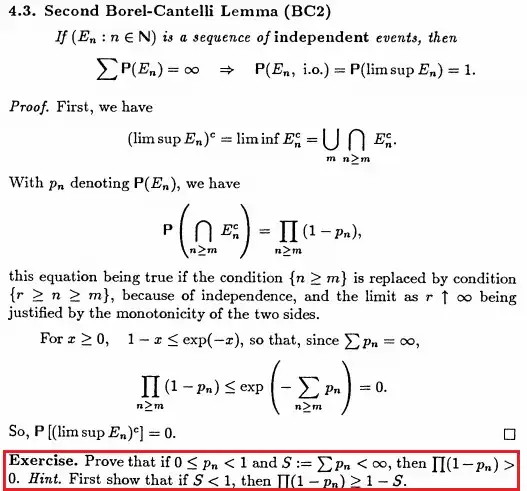This is supposed to be related to the 2nd Borel-Cantelli Lemma (my justification for the independence tag). In Williams' Probability with Martingales, 2BCL is proven and then the following is given as an exercise:
Prove $S \doteq \sum_{n=1}^\infty p_n < \infty \implies \prod_{n=1}^\infty (1-p_n) > 0$ assuming $0 \leq p_n < 1$.
Hint: Show that $S < 1 \implies \prod_{n=1}^\infty (1-p_n) \geq 1 - S$.
Proving the hint:
I tried to find $\{a_n\}$ s.t.
$$\prod_{n=1}^\infty (1-p_n) \geq \prod_{n=1}^\infty e^{a_n} = e^{\sum_{n=1}^\infty a_n} \geq 1 - \sum_{n=1}^\infty a_n \geq 1 - S > 0$$
That is, find $\{a_n\}$ s.t.:
1a. $1 - p_n \geq e^{a_n}$
1b. $a_n \leq p_n$
I thought of $a_n = \ln(1-p_n)$ (a reason why $p_n < 1$, I guess)
Is that right?
Edit: Actually, assuming my proof is right, is $S < 1$ used in the proof? If so, where?
From Williams book:
